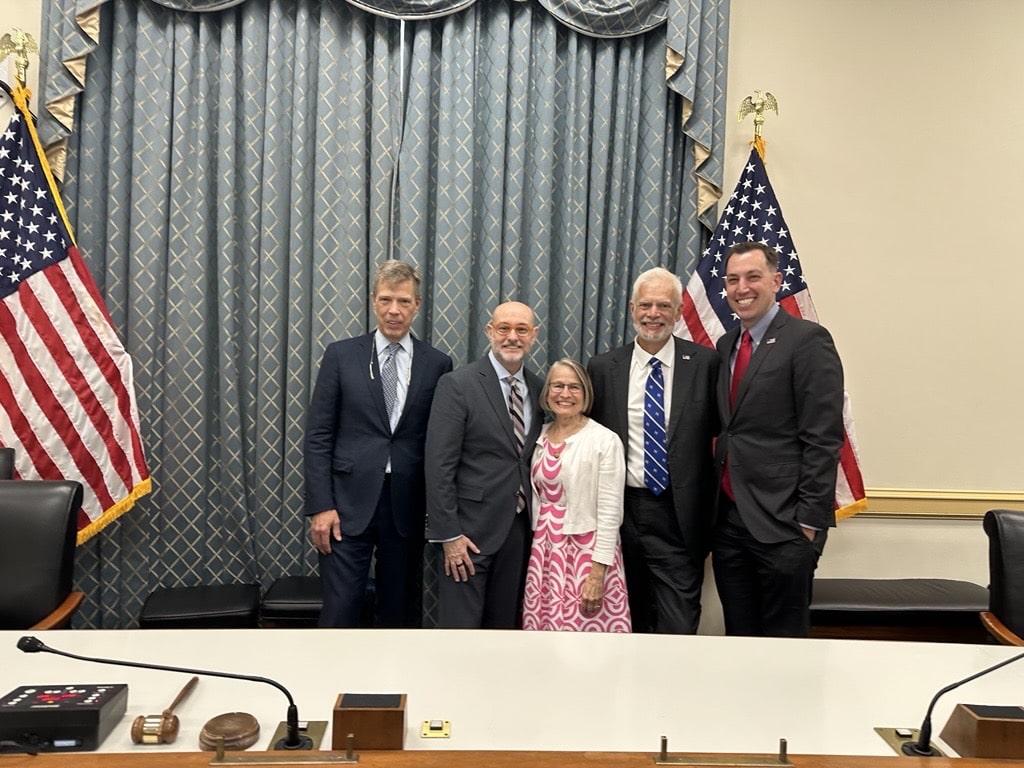
Washington, D.C. – June 27, 2025 – On Wednesday afternoon, June 25, 2025, Congresswoman Mariannette Miller-Meeks, M.D. (IA-01), convened a bipartisan Capitol Hill briefing to spotlight how artificial intelligence (AI) is transforming clinical practice and patient care. Members of Congress, staff, and healthcare leaders heard from innovators using AI to improve outcomes, streamline workflows, and expand access, especially in underserved areas.
The discussion emphasized the importance of responsible AI that supports, rather than replaces, clinical judgment, while upholding privacy and ethics and expanding access to quality care. The event included a robust Q&A covering regulatory challenges, liability protections, reimbursement hurdles, and the role of venture capital in scaling AI tools.
“Artificial intelligence holds tremendous potential to improve the effectiveness and efficiency of healthcare delivery, and as a Member of Congress and the Energy and Commerce Committee, I believe the federal government can learn a lot from the pioneers of AI in healthcare,” said Rep. Miller-Meeks. “During our roundtable, we heard from innovators who developed AI that is detecting heart disease and vision-threatening conditions associated with diabetes earlier and more cost-effectively—preserving vision and even saving lives.”
“We are living through a moment of major societal transition, and AI is already touching nearly every aspect of how we prevent, diagnose, and manage disease,” said Dr. Jesse Ehrenfeld, Immediate Past President of the American Medical Association. “Two-thirds of U.S. physicians are using AI tools today—not to replace clinical judgment, but to offload routine tasks and improve workflow efficiency.”
“Only about 20% of patients with diabetes complete their recommended annual eye exams, leaving most at risk of preventable vision loss,” said Dr. Michael Abramoff, Founder of Iowa-based Digital Diagnostics. “Autonomous AI helps close this care gap by enabling early detection in primary care—supported by CPT reimbursement and national policy to expand access while lowering cost.”
“AI tools like HeartFlow’s coronary CT technology give physicians vital insights into blood flow and plaque characteristics,” said Dr. Campbell Rogers, Chief Medical Officer of HeartFlow. “We need AI-specific reimbursement frameworks to ensure these innovations are available to patients who need them most.”
“As investors, we operate at the intersection of business, government, and society,” said Todd Klein, Partner at Revolution Growth. “Our unique access to policymakers, paired with deep national networks, helps startups scale transformative technologies like healthcare AI responsibly and effectively.”
Key Takeaways:
- Aligning FDA clearance and CMS payment is imperative to ensure access to care through federal and state reimbursement.
- AI focused on outcomes enhances—rather than replaces—physician work and enables top-of-license practice.
- Healthcare startups are crucial drivers of AI innovation and should be engaged as resources by Congress, FDA, CMS, and OSTP.
- A transparent, consistent regulatory pathway is needed for autonomous AI approval in healthcare.
The briefing underscored the critical opportunity for the United States to lead in safe, ethical, and scalable AI healthcare deployment, if the regulatory and reimbursement environment is designed to support it.